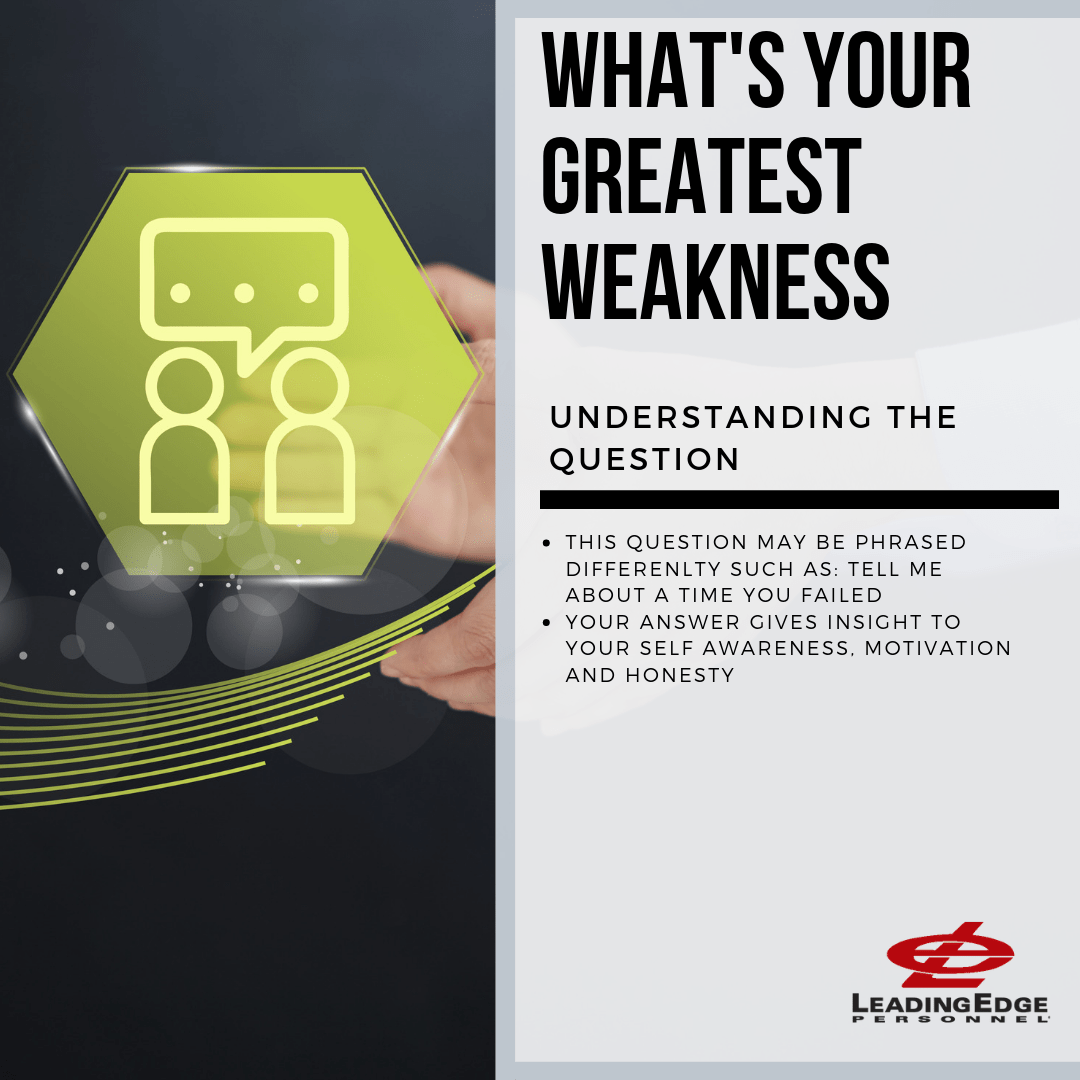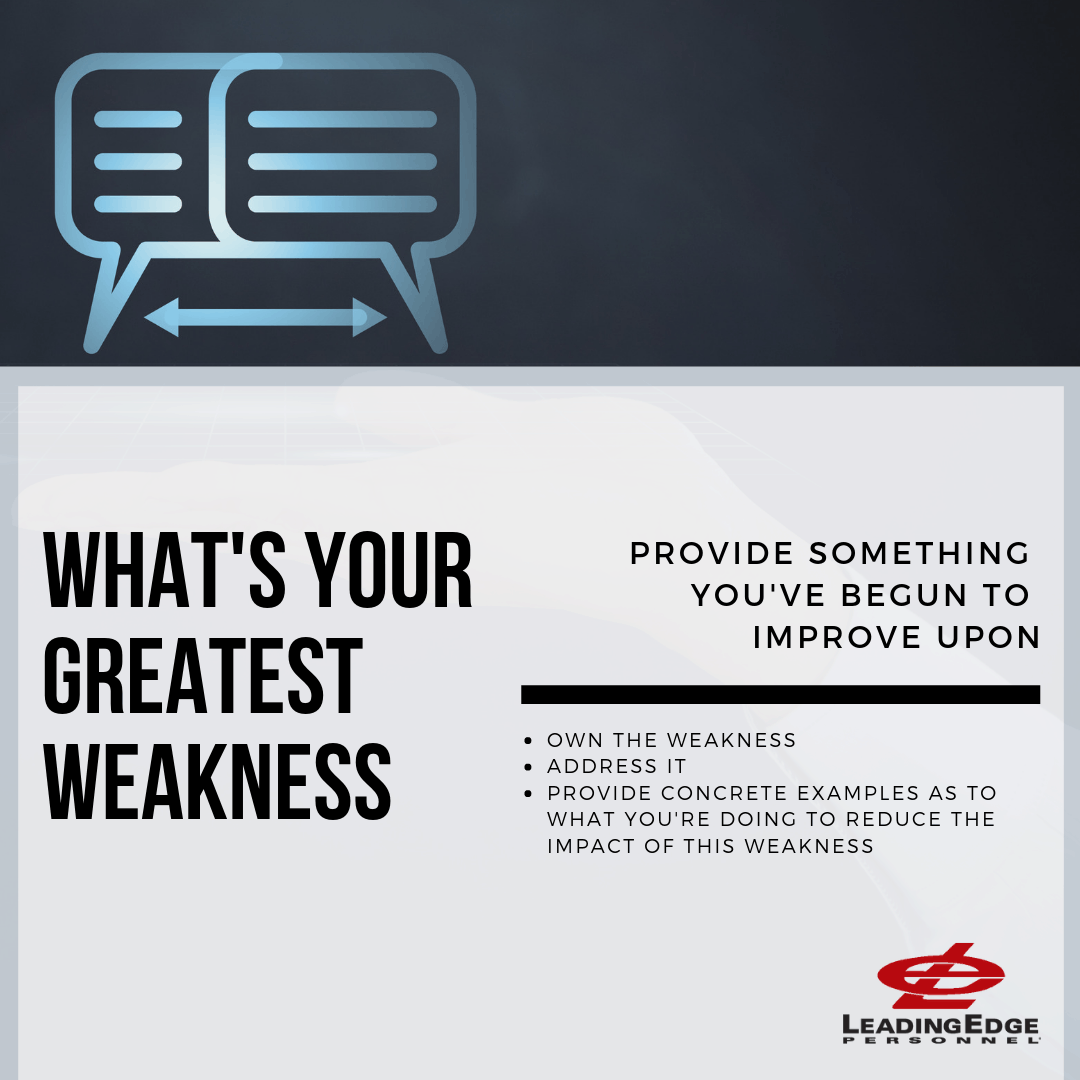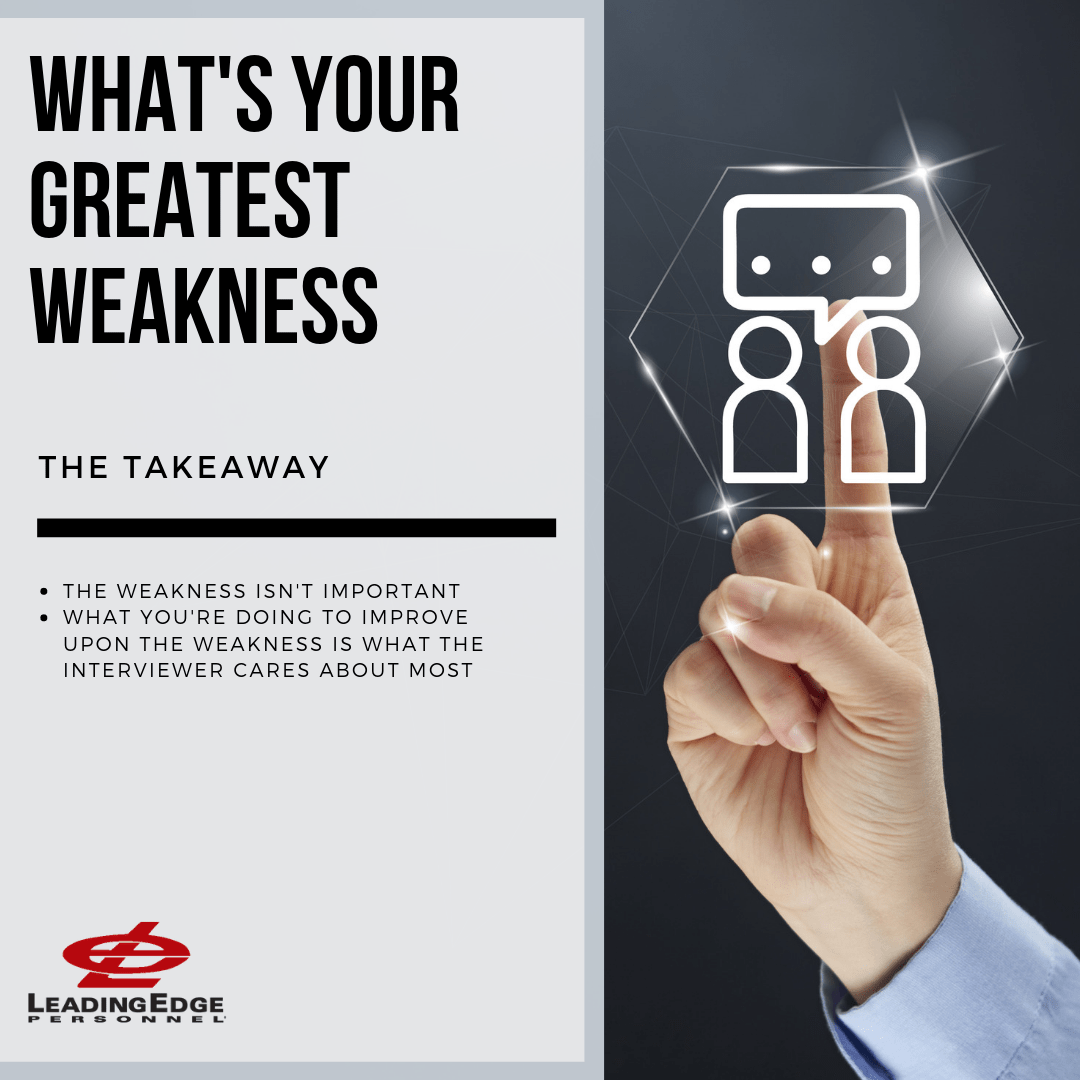29 Dec Greatest Weakness: How to Answer
Greatest Weakness: Tips on Answering This Question
We all have them: weaknesses. It’s no wonder that one of the hardest interview questions to answer is “What is your greatest weakness?”. While we’re not fond of thinking about our weaknesses, taking a personal inventory is a critical first step in any job search. The biggest weakness question doesn’t have to be a barrier to your dream job- as long as you know how to answer this question correctly.
It’s never easy to discuss our flaws. The job search process can feel like such a vulnerable time too! Sometimes this question can feel like a trap but it and prove an excellent way to show your ability to be honest and grow. There’s much to be learned about a candidate by their answer to this question. So, don’t be offended or afraid to tackle this topic head-on. Let’s dig in and strategize on best practices for answering: “what’s your biggest weakness?”
Understanding the Greatest Weakness Question
For you to understand how to answer this question, it’s helpful to know why and how your interviewer is asking it.
 Why Ask this Question?
Why Ask this Question?
Your interviewer can gauge a few character traits based on your answer to this question:
- Self-Awareness – Your ability to own a weakness or flaw shows that you’re an introspective thinker. You’re not someone who can’t be corrected or who refuses to admit when they’re wrong. You are accountable and that is a valuable trait in every employee.
- Motivation – Your ability to follow up with actionable steps to minimize or improve upon your weakness is a direct illustration of your motivation. More than that, your follow up on your weakness will let your interviewer know of your capacity for growth.
- Honesty – Your ability to share candidly, professionally and honestly what your biggest weakness is in an interview setting is a great building block for a professional relationship.
How The Question Sounds
An interviewer may ask about your greatest weakness outright or might ask about it in a roundabout way such as “tell me about a time you failed” or “tell me about a difficult work situation and how you overcame it”. Don’t lose sight of your strategy and answer. You’ll be ready for this question in all of its forms.
How to Answer What’s Your Biggest Weakness
The most important thing is to turn a negative into a positive in your answer. Here are are a few general conventions to keep in mind when crafting your answer:
- Don’t force a strength into a weakness. (Read: I work too hard!) If you have difficulty coming up with a weakness, sit down and make a list of weaknesses. Ask a coworker or friend and receive their feedback with gratitude.
- It’s okay to humble brag about tangible results you’ve achieved but don’t do it about personal characteristics.
- Practice your answer, in front of a mirror, with a partner or friend. Practice makes perfect!
- Don’t know what your weaknesses are? Make a list of weaknesses for evaluation and then decide which to use for your interview answer.
Below you’ll find a few simple strategies for answering this question and what is your greatest weakness answer samples too!
 Provide something you’ve already begun to improve upon
Provide something you’ve already begun to improve upon
I’m leading with my favorite strategy and the one I feel is most effective. Honestly address the weakness and then provide ways you’ve started work to improve upon this weakness.
Example: In the past, I’ve had difficulty maintain focus. What I’ve learned helps me is to break a project into smaller parts so that I can multitask when needed to keep a fresh mind and stay productive.
Don’t name the weakness
Present the symptoms and describe the weakness rather than naming it outright. Then, follow up to explain your strategy for combatting this weakness.
Example: In the past, I’ve found that my mind can sometimes wander if I’m focused on a singular task for an extended period of time. What I’ve learned helps me is to break a project into smaller parts so that I can multitask when needed to keep a fresh mind and stay productive.
Mention non-essential skills
If you cannot come up with an example of a relevant weakness in which you’ve begun to improve upon, then mentioning non-essential skills is the next best strategy to adopt. Let’s say you’ve applied for an outside sales position.
Example: My greatest weakness is that sometimes I can get restless if something feels monotonous. I think that’s part of why I enjoy and thrive in outside sales so much. Even though some days feel the same, I still have the opportunity to meet new people each day and no one day is ever the same.
The Takeaway
The weakness question isn’t scary when you dissect it, practice your answer and are comfortable with owning your story. Confronting this question and knowing your answer before you even submit a resume or cover letter is a great starting point for crafting your cover letter and elevator pitch in fact.
In all of our strategies – did you notice a pattern? The most important thing here isn’t your weakness. It’s what you’re doing about your greatest weakness. People admire and respect people who strive to improve. Earning the respect of your interviewer is a great start to a working relationship!
Stay tuned for more tips on answering those tricky interview questions, choosing the right agency for you, crafting an elevator pitch and cover letter and networking with the right people. The topic of how to answer the greatest weakness question came to us via social media. If you have a question you’d like to submit for us to discuss, send it to us here.
Be sure to follow us, we’re:
On Instagram @leadingedgepersonnel
On Twitter @leading_edge1
On Facebook @leadingedgepersonnel
We’re also on LinkedIn, Youtube and Pinterest! When you follow us, be sure to say hi- we’re social people, we love it when you say hi!




Sorry, the comment form is closed at this time.